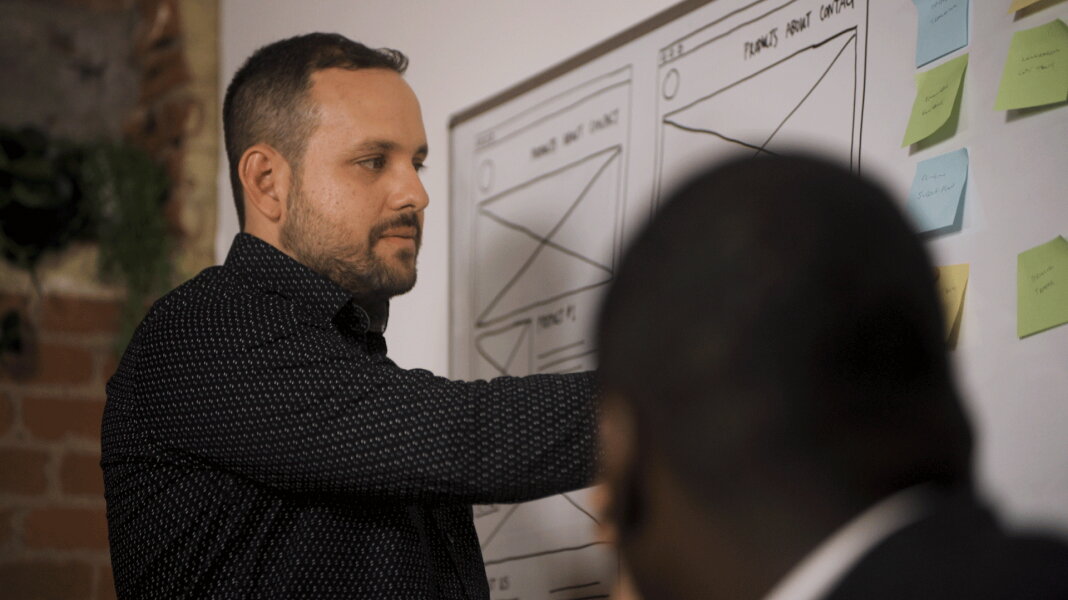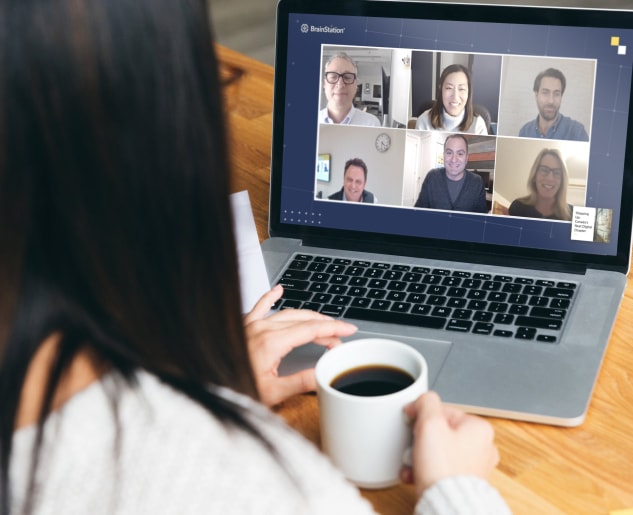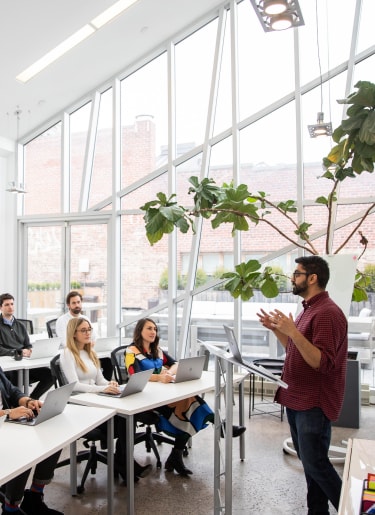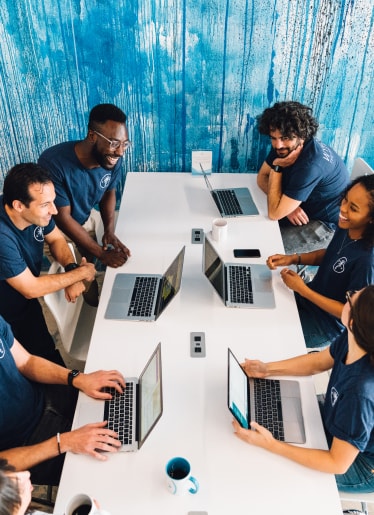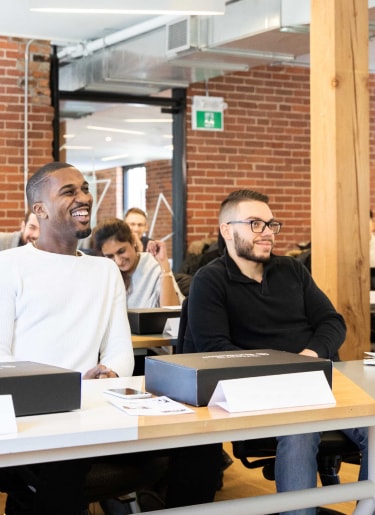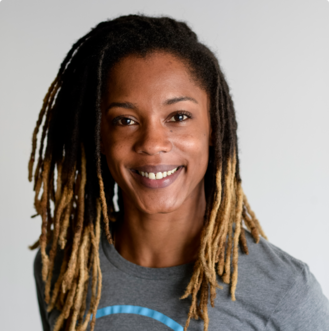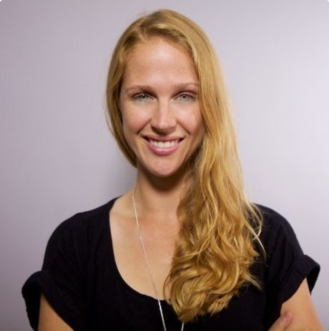What Are Coding Bootcamps?
Coding bootcamps are short, intensive training coding programs and tech courses that give students the skills they need for new careers in technology. Programming bootcamps and code schools like BrainStation have become an increasingly popular alternative to a four-year computer science degree, allowing students to gain real-world experience under the instruction of top industry professionals.
While "coding bootcamps" as a term has come to be used for digital skills training across disciplines, including courses and programs relating to web development, software development, data science, UX design, and digital marketing, the term originally was meant to describe short-term, intensive training programs in full-stack web development, software development, or software engineering.
As one of the best coding bootcamps, BrainStation provides hands-on, project-based learning, allowing students with no prior experience to learn how to use programming languages like HTML, CSS, JavaScript, Python, SQL, and more.
The goal of our coding bootcamps is to prepare you for a new career in web development, software development and engineering, data science, design, security, digital marketing, or related tech fields. To that end, bootcamp graduates also benefit from ongoing, personalized career services meant to provide guidance and support during the job search.
How Do Coding Bootcamps Work?
Coding bootcamps work by giving students hands-on experience with the key programming languages, knowledge areas, and technical skills needed for a career in technology.
The best coding bootcamps are taught by experienced professionals who know what employers are looking for. Many bootcamp students are looking to change careers, so the best bootcamps help with the job search, including career services, a network of hiring partners, and opportunities to build professional networks through events and guest lectures.
Ultimately, coding bootcamp students learn the skills and develop the project portfolio necessary to land a job in web and software development, software engineering, data science, UX design, digital marketing, or other tech fields.
How Do I Choose my Tech Career Path?
When trying to determine your tech career path, the first step is to understand where your interests and passions truly lie. Do you have a good sense of computer science fundamentals? Are you excited about the idea of building a website? Take a look at full-stack web development and the kinds of careers you can have after taking a web development bootcamp. Are you good with numbers and like identifying trends (that would have remained hidden)? A career in data science might be for you. Asking yourself questions like these will help guide your job search and the kind of training you need.
From there, take stock of the skills and experience you currently have – whether or not they are in computer science. Is there any overlap with skills that are most in demand? Does your education and professional experience lend itself to an emerging field like data science, software, development, or digital marketing?
How Long Are BrainStation's Coding Bootcamps?
BrainStation's coding bootcamps generally take three months to complete on a full-time basis — 12 weeks.
In that time, you will develop a comprehensive understanding of web development, data science, user experience design, or digital marketing fundamentals, and learn how to apply these new skills and knowledge. BrainStation bootcamps are immersive and project-based, allowing you to build a portfolio of completed projects by the end of the bootcamp.
For students seeking more flexibility, BrainStation also offers part-time bootcamps, which are completed over eight months.
How Much Do Coding Bootcamps Cost?
Tuition for full-time coding bootcamps can vary depending on the field of study, the location of the campus, the method of study chosen (online or in-person), or how comprehensive the course is.
Some programming bootcamps and code schools could be relatively inexpensive or quick to complete, but might not cover the full range of skills and competencies needed, especially for students interested in full-stack web development.
How to Pay for a Coding Bootcamp
For students who cannot pay out of pocket, there are a number of options for how to pay for a coding bootcamp, including applying for scholarships, pursuing flexible payment options, or exploring government grants and training or education benefits through your employer.
BrainStation's coding bootcamps have a range of scholarships available for students who need financial help or who meet other eligibility requirements.
BrainStation also offers a variety of flexible payment plan options.
How Much Will I Make After a Coding Bootcamp?
Coding bootcamp graduates (which can include graduates from web development, software engineering, data science, UX design, and digital marketing bootcamps) in the United States have a national average starting salary of roughly $70,000 in their first jobs.
Bootcamp graduates typically increase their salary around 50 percent after completing a tech bootcamp or code school online. The number is higher for low-income students, who receive a roughly 180 percent salary raise.
Those salaries rise with experience. Coding bootcamp graduates in their second job earn roughly $80,000 on average. By their third job? They earn an average of just under $100,000 per year.
Are Coding Bootcamps Worth It?
Yes, coding bootcamps (often also referred to as tech bootcamps or programming bootcamps) are worth it because they allow graduates to gain in-demand digital skills and computer science knowledge in a very short period of time, expand their professional networks, and get prepared for a new career in a fast-growing industry in a matter of months.
Although it is possible to learn many digital skills by yourself (including how to write code and use different programming languages), most find the self-taught path too time-consuming and challenging. Completing a tech or programming bootcamp is also much more affordable than getting a four-year college degree that might not cover the technical skills needed for a job.
It also helps that there is such high demand for tech professionals with knowledge of computer science fundamentals, web development basics, and data science skills. Given that coding bootcamps help graduates start new careers as Web Developers, Software Engineers, Data Scientists, Digital Marketers, or UX Designers, most find that bootcamps are worth the time and money.
The Pros and Cons of Coding Bootcamps
The pros of coding bootcamps are that they can focus on the most up-to-date coding languages and frameworks, they offer an immersive, project-based learning environment, and they are typically led by experts in web development, data science, UX designer, and digital marketing, who can mentor students academically and professionally.
On the other hand, coding bootcamps usually require a time commitment, and not all bootcamp programs and code schools are equally as effective. Students need to research to find the best programs.
How to Choose a Coding Bootcamp
To choose a coding bootcamp, you should research each program extensively, determine your professional and learning goals, and reach out to current students and alumni to learn more about their experiences.
During your research process, look into the curriculum of each program you are considering to see exactly what they cover. Make sure the bootcamp offers the chance to complete real-world projects and build a portfolio.
It is also worth exploring how each bootcamp might help you professionally, as top coding bootcamps offer career services, networking events, and partnerships with top employers. Location matters as well, as some would prefer to attend a bootcamp in a tech hotbed like New York City or San Francisco.
How to Get Into a Coding Bootcamp
To get into a BrainStation coding bootcamp or tech course, you should explore admission requirements, prepare yourself for a programming challenge, and speak to a BrainStation Learning Advisor to answer any questions you might have.
BrainStation coding bootcamps require a high school diploma (the majority of BrainStation bootcamp students already have a bachelor's degree). As admissions to bootcamp programs can be competitive, applicants also must complete a prep course challenge and a live video interview with a member of the Admissions team.
English language proficiency is also a requirement for taking a bootcamp at BrainStation.
How to Prepare for a Coding Bootcamp
To prepare for a BrainStation coding bootcamp, you should build out your basic programming or tech knowledge as much as possible, gain clarity on your educational goals, and let people in your professional network know about your upcoming career change.
Although coding and tech bootcamps are designed for students with no prior computer science or tech experience, we offer a prep course challenge, resources, and additional materials to help you get ready. It's also worth exploring the many free online classes and resources, YouTube tutorials, and coding webinars available on the Internet.
Since attending a coding bootcamp is likely a step toward a new career, you should also start looking to build your professional network by looking for events, online communities, and mentorship opportunities in web development.
BrainStation also offers a range of industry and career-focused events to help you get started.
How to Succeed in a Coding Bootcamp
To succeed in a coding bootcamp, make sure to network with other students, introduce yourself to faculty, and explore any career supports and on-campus events that are available.
Your bootcamp classmates can be an invaluable resource both while you're completing the bootcamp and after you graduate, when they form the beginning of your professional network. Connect early over LinkedIn so you can lean on each other with questions and feedback on the course and assignments.
BrainStation bootcamp alumni often rave about the connections they made with faculty, who have experience working at some of the world's most innovative companies. You should begin establishing those relationships right away to make the most of your coding bootcamp experience.
Coding Bootcamp Jobs
Jobs you might be qualified for after a coding or tech bootcamp include Web Developer, Software Developer, Software Engineer, UX Designer, UI Designer, Data Analyst, Data Scientist, and Digital Marketer, depending on your other academic credentials, professional experience, and career goals.
Although many people attend a coding bootcamp hoping to get into software and web development, the programming skills you develop would be applicable to a variety of fields including cybersecurity, digital marketing, product management, web design, data science, data analytics, and more.
Do Coding Bootcamps Get You Jobs?
Coding bootcamp graduates actually get jobs in large numbers because they are entering a hot job market with in-demand skills, but there are no guarantees.
Outcome reports show that alumni from top coding bootcamps tend to find jobs quite easily after they graduate.
In fact, more than 90 percent of BrainStation's bootcamp graduates are employed in their fields within 180 days of graduation.
Do Companies Hire Bootcamp Grads?
Companies consistently hire from coding bootcamps, as studies show that 84 percent of employers think bootcamp grads are at least as prepared and likely to be high performers as candidates with computer science degrees.
An Indeed study found that 72 percent of employers think bootcamp grads are just as likely to be high performers as candidates with a computer science degree, while another 12 percent think bootcamp grads are actually more likely to be high performers.
Coding bootcamps are also helping to create a more diverse tech workforce. Over half of companies said that hiring bootcamp grads helps get more people from underrepresented groups working in tech.
And 50 percent also cited coding bootcamps as a good way to retrain workers who don't have college degrees.
How to Get a Job After Coding Bootcamp
To get a job after coding bootcamp, you should start by leaning on your professional network, establishing an online presence with a portfolio website, and applying for an internship, job placement, or entry-level job.
The faculty and fellow students you meet during your bootcamp program are also key additions to your professional network, and they might help you find job opportunities. You should also see if your coding bootcamp has a career services team to plan networking events, industry meetups, and conferences. Outside of your bootcamp, look out for opportunities to explore specialized subjects like soft skills training, technical interview preparation, and more.
A good coding bootcamp should also produce graduates with polished portfolios. Depending on your field, your portfolio should ultimately include an overview of completed projects, your professional and educational experience, and a variety of ways to contact you (email, social media, or your next preferred contact method.)
Do Coding Bootcamps Offer Career Services?
Most coding bootcamps offer career services and a professional support system to help graduates with their job search.
At a coding bootcamp, career services teams might offer resume help, mock interviews, or advice on how to write a cover letter.
BrainStation's Career Accelerator Program provides ongoing career services, including industry networking opportunities with hiring partners at world-class companies, portfolio and resume writing support, one-on-one career development with Advisors, and more. The program was created to ensure bootcamp graduates are well-prepared to land a job, and the support team consists of experts knowledgeable about both tech track interests and employment more generally.
I Don't Have a Technical Background. Will Coding Bootcamps be Challenging for Me?
Coding bootcamps should be challenging but not overwhelming, as they are designed to be accessible for students who don't have a technical background or technical experience.
Whether you want to learn web development, data science, UX design, or any other discipline, coding bootcamps offer hands-on training that will first build out your technical knowledge and tech skills.
After building those fundamentals, most coding bootcamps will introduce more advanced knowledge areas only after you are ready to tackle them. For instance, a web development bootcamp would first teach the basics of coding and build your competency in one programming language at a time before moving on to related areas like full-stack software development, mobile development, data structures, algorithms, and more.
Will I Get a Diploma, Credential, or Certificate for Finishing BrainStation's Coding Bootcamps?
Yes, graduates of BrainStation's full-time Web Development, Data Science, UX Design, and Digital Marketing bootcamps earn an accredited diploma, which can boost your LinkedIn profile and resume, helping you stand out in the job market when starting a new career.
Can I Work While Attending a Coding Bootcamp?
It would be very difficult to work while attending a full-time coding bootcamp. BrainStation's bootcamps, for example, are full-time, 400-hour learning experiences in an intensive 12 week period. The programs are also completely project-based, ensuring that students can apply new skills and knowledge immediately and build a portfolio of completed projects — this usually requires work outside of scheduled in-class time, making it very challenging to maintain full-time employment at the same time.
The condensed nature of these programs, however, is why web development and data science bootcamps have become so popular in the last 10 years – in just 12 weeks you can develop the skills and experience you need to start a new career as a Web Developer, Software Engineer, or Data Scientist, among other emerging fields.
For those unable to take time away from work, BrainStation offers part-time bootcamps, allowing you to prepare for a new career over eight months.
Why is BrainStation the Best Coding Bootcamp for Me?
BrainStation is the best coding bootcamp for professionals who want to launch new careers in the tech industry because our project-based learning approach gives students valuable real-world experience, with immediate feedback from top industry experts, and access to our supportive community and industry leading network of global hiring partners.
BrainStation's award-winning coding bootcamps are intensive, hands-on programs designed to prepare students for new careers in tech, with in-demand digital skills and class projects creating a standout portfolio of real-world work.
BrainStation's Educators are experienced and well-connected tech industry leaders who work closely with students to guide their learning and prepare them for new careers in their chosen fields.
Most of BrainStation's bootcamps and courses are offered with a flexible delivery format — full-time or part-time, online or in-person — so they are accessible to working professionals at all stages of their careers. To help our graduates thrive in their new careers, BrainStation also offers industry networking events with hiring partners at some of the world's top companies, career services including resume and portfolio support, and opportunities to work one-on-one with our expert career services teams.

